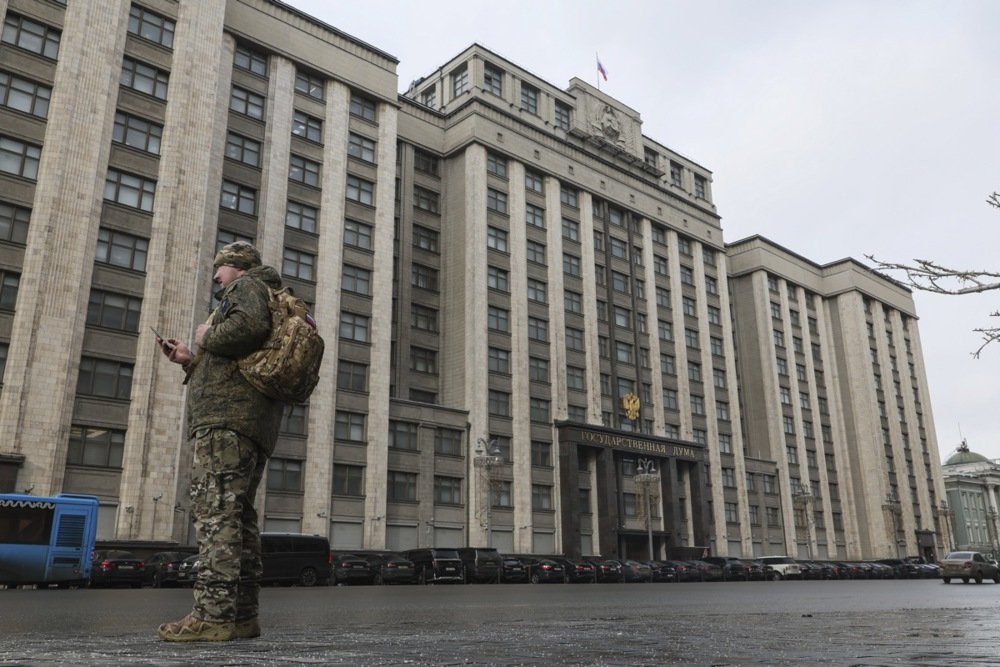
A man in military uniform stands in front of the Russian State Duma building in Moscow, 19 February 2025. Photo: EPA-EFE/MAXIM SHIPENKOV
Russia’s lower house of parliament, the State Duma, passed a series of bills in their second and third readings on Tuesday that place further restrictions on those the government has labelled “foreign agents”.
One of the bills approved by the Duma bans Russian citizens who have been declared “foreign agents” from teaching in schools and universities, a significantly more powerful sanction than that provided for by existing legislation, which only bans foreign agents from teaching minors or teaching in state-run institutions.
Another bill expands the criteria for labelling individuals “foreign agents” to include those who “assist in the implementation of decisions” at international organisations of which Russia is not a member, such as the International Criminal Court, as well as anyone involved in military intelligence gathering.
The new legislation also allows for “foreign agents” to be tried in absentia for crimes including “inciting terrorism”, spreading “false” information about the military and “rehabilitating Nazism”, with individuals facing prison terms of up to five years for “calling for sanctions” on Russia and up to seven years for “discrediting the Russian army … for mercenary motives and payment”.
The new bills, which, according to Duma Speaker Vyachelav Volodin, are intended to prevent “foreign interference in Russia’s domestic policy”, are expected to be rubber-stamped by the Federation Council, Russia’s upper house of parliament, and signed into law by Vladimir Putin in the coming weeks.
Under Russian law, any person or organisation deemed to have received funding from abroad or to be under “foreign influence” must register as a “foreign agent”. However, as those designated as such are barred from working in certain professions and are often left unable to find work, as well as being subjected to onerous financial disclosure requirements, the label has been routinely abused by the authorities to intimidate and punish Kremlin critics and independent journalists.
